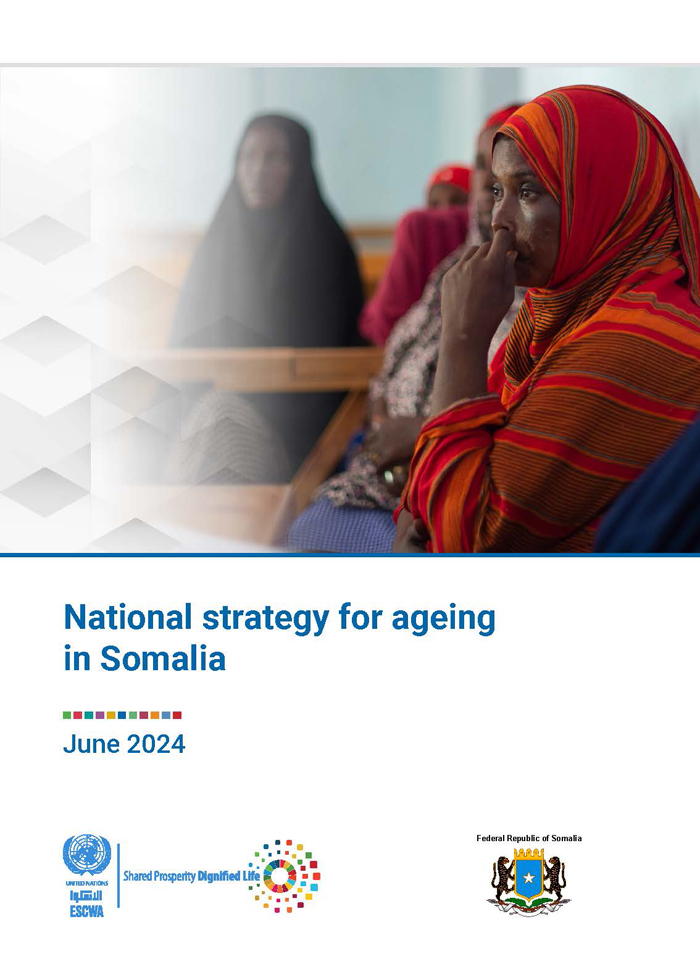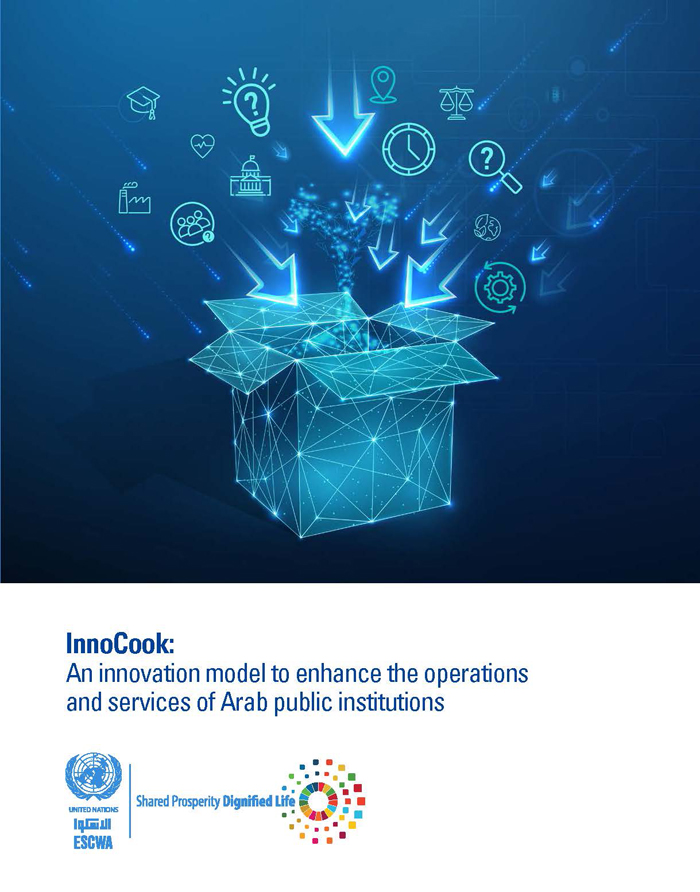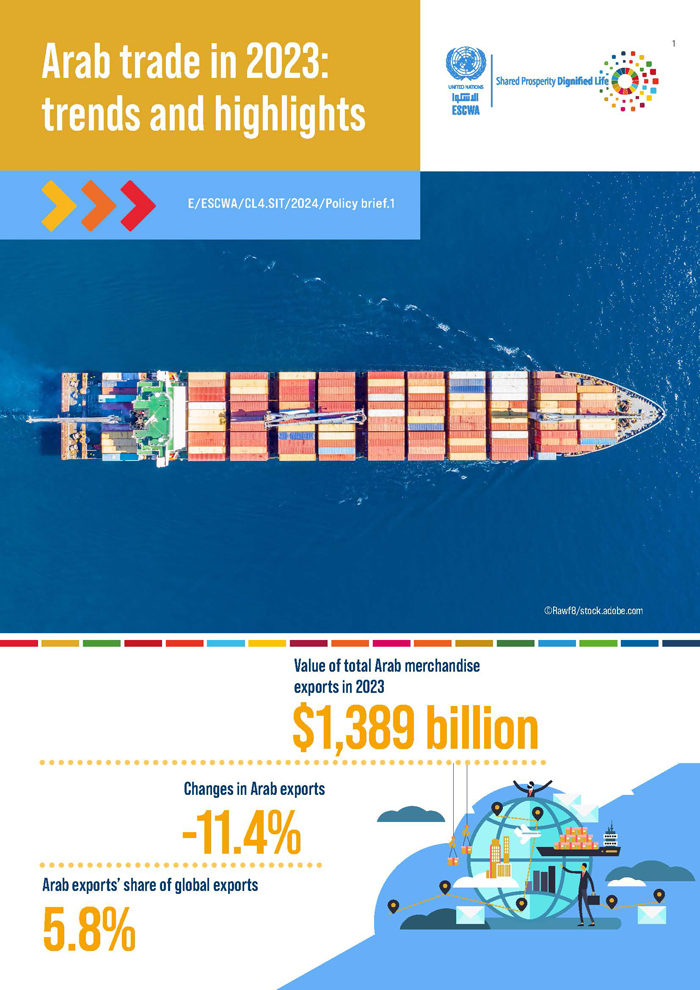
ESCWA Publication: E/ESCWA/SCU/2008/1
Country: Arab region
Publication Type: Meeting reports
Cluster: Statistics, Information Society and Technology
Focus Area: Statistics
Initiatives: Water Resources Management Tools
SDGs: Goal 6: Clean Water and Sanitation
Keywords: Water supply, Environmental accounting, Environmental economics, Participants, Recommendations, Water resources
Report of the Joint Sub-regional Training Session on the System of Integration Environmental-Economic Accounting for Water Resources
January 2008
In collaboration with MEDSTAT II Environment Sector and the United Nations Statistics Division (UNSD) at the Department of Economic and Social Affairs, ESCWA organized the Joint Sub-regional Training Session on the System of Integrated Environmental-Economic Accounting for Water Resources, from 10 to 13 March 2008. The session fell within the framework of the activities of the Strengthening National Capacities in Environment Statistics, Indicators and Accounts Project (ESIAP) and was pursuant to the Expert Group Meeting on the Production of Statistics on Natural Resources and Environment held in Cairo from 5 to 7 June 2007. The training session was attended by representatives from National Statistical Offices and water ministries in nine ESCWA member countries, as well as by an expert from the Austrian Federal Environment Agency. The Session focused on explaining and discussing the basic concepts, definitions, methodologies and classifications used in the System of Environmental and Economic Accounting for Water (SEEAW), which was adopted by the United Nations Statistical Commission as a statistical benchmark in 2007, in the framework of the System of Integrated Environmental and Economic Accounting (SEEA). Hands-on exercises and examples of how to complete in detail standard tables for water supply and use, emission accounts, asset accounts and others were also presented. Discussions revolved around ways to collect data related to the SEEAW and on the difficulties faced by those producing these data. Participants unanimously agreed on the need for both coordination between the parties involved in producing environmental and water data and National Statistical Offices, and for the standardization of concepts and methodologies in order to prepare integrated environmental and economic accounts. The discussions culminated in the drafting of a set of recommendations addressed to both member countries and ESCWA aimed at enhancing the quality of water statistics so as to produce standard tables in SEEAW on which decision makers in water resources management could rely in order to achieve economic growth that would ensure sustainable development.
Related content
Statistics
,
In collaboration with MEDSTAT II Environment Sector and the United Nations Statistics Division (UNSD) at the Department of Economic and Social Affairs, ESCWA organized the Joint Sub-regional Training Session on the System of Integrated Environmental-Economic Accounting for Water Resources, from 10 to 13 March 2008. The session fell within the framework of the activities of the Strengthening National Capacities in Environment Statistics, Indicators and Accounts Project (ESIAP) and was pursuant to the Expert Group Meeting on the Production of Statistics on Natural Resources and Environment held in Cairo from 5 to 7 June 2007. The training session was attended by representatives from National Statistical Offices and water ministries in nine ESCWA member countries, as well as by an expert from the Austrian Federal Environment Agency. The Session focused on explaining and discussing the basic concepts, definitions, methodologies and classifications used in the System of Environmental and Economic Accounting for Water (SEEAW), which was adopted by the United Nations Statistical Commission as a statistical benchmark in 2007, in the framework of the System of Integrated Environmental and Economic Accounting (SEEA). Hands-on exercises and examples of how to complete in detail standard tables for water supply and use, emission accounts, asset accounts and others were also presented. Discussions revolved around ways to collect data related to the SEEAW and on the difficulties faced by those producing these data. Participants unanimously agreed on the need for both coordination between the parties involved in producing environmental and water data and National Statistical Offices, and for the standardization of concepts and methodologies in order to prepare integrated environmental and economic accounts. The discussions culminated in the drafting of a set of recommendations addressed to both member countries and ESCWA aimed at enhancing the quality of water statistics so as to produce standard tables in SEEAW on which decision makers in water resources management could rely in order to achieve economic growth that would ensure sustainable development.


